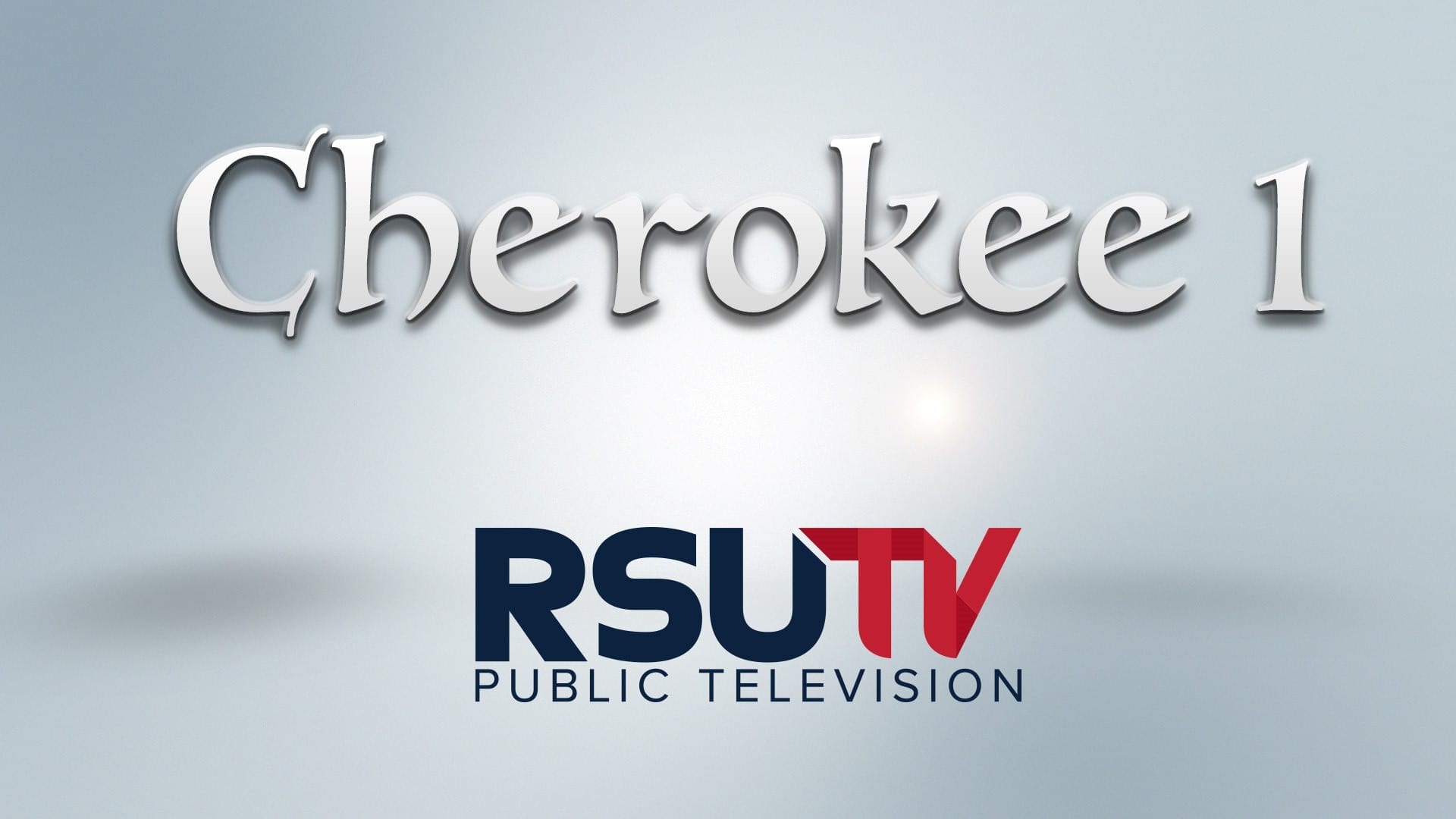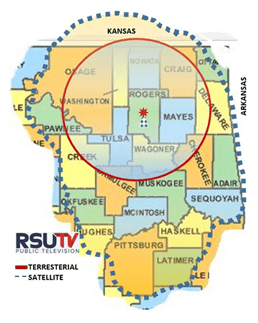RSU Public TV is Igniting Interest in Cherokee Language
 OneNet has served Oklahoma’s higher education institutions since 1996, creating a long-standing relationship with Rogers State University in Claremore, Oklahoma. As the internet service provider for RSU, OneNet provides high-speed connectivity to serve faculty, staff and students.
OneNet has served Oklahoma’s higher education institutions since 1996, creating a long-standing relationship with Rogers State University in Claremore, Oklahoma. As the internet service provider for RSU, OneNet provides high-speed connectivity to serve faculty, staff and students.
In addition, OneNet connects RSU to the OneOklahoma Friction Free Network (OFFN). OFFN is Oklahoma’s Science DMZ and provides research-grade connectivity to support science and education initiatives at RSU. OneNet also provides RSU 222 Zoom licenses at a reduced rate as part of OneNet’s educational purchasing program.
OneNet is now partnering with Rogers State University Public TV to promote a program with a shared mission. RSU Public TV and the Cherokee Nation are teaming up to ignite interest in the Cherokee language. RSU Public TV has launched the first televised Cherokee language learning course. The course is available to high school students through concurrent enrollment courses and to the general public through a telecourse.
RSU Public TV and the Cherokee Nation’s goal to share the Cherokee language with students and adults fits closely with OneNet’s mission serve Oklahoma’s tribes. OneNet provides internet connectivity for several of the Cherokee Nation’s tribal agencies.
“OneNet is a proud to serve RSU and the Cherokee Nation, and we’re excited to share the Cherokee language course with the schools and other constituents we serve,” said OneNet Executive Director Vonley Royal. “We applaud the partnership between RSU Public TV and the Cherokee Nation. Partnerships like these make a real difference in preserving our tribal languages, such as the Cherokee language.”
For the general public, the Cherokee language telecourse consists of 48 episodes, each about 50 minutes long and taught by Cherokee Nation Language Technology Specialist Wade Blevins. The telecourse is titled Cherokee I and airs at 11 a.m. on Mondays, Wednesdays and Fridays on RSU Public TV during the RSU spring semester. It is also available online at www.rsu.tv/cherokee.
“Preserving and perpetuating the Cherokee language will take a tremendous amount of resource, so it’s exciting to see partnership opportunities such as this come along,” said Cherokee Nation Principal Chief Chuck Hoskin Jr. “Teaming up with Rogers State University gives us new avenues for teaching the Cherokee language, and that means more and more Cherokees – and perhaps even those who are not Cherokee – have easy access to this beginners-level course. I appreciate RSU for always being open to new ideas. They have been a great partner to the Cherokee Nation and I look forward to future projects.”
The Cherokee Nation is the federally recognized government of the Cherokee people. The seat of tribal government is the W.W. Keeler Complex near Tahlequah, Oklahoma, the capital of the Cherokee Nation. With more than 370,000 citizens, 11,000 employees and a variety of tribal enterprises ranging from aerospace and defense contracts to entertainment venues, Cherokee Nation is one of the largest employers in northeastern Oklahoma and the largest tribal nation in the United States.
“Cherokee Nation’s Language Program and RSU teamed up to offer this course initially for college credit at the university, but the success of the project has opened the door to make it a telecourse,” said Cherokee Nation Language Program Manager Roy Boney. “We hope this encourages more people to seize the opportunity and begin learning our beautiful language.”
The Cherokee Nation Language Program offers a certificate of completion for those who register for the class on the Cherokee Nation website and complete the associated quizzes with a score of 80 percent or higher. Participants who wish to earn the certificate of completion from the Cherokee Nation Language Program should enroll on the Cherokee Nation website at https://learn.cherokee.org/.
In addition to the telecourse, the Cherokee I course is available to high school students through concurrent enrollment. High school junior and senior students looking to jumpstart their college degree and fulfill language course requirements through concurrent enrollment can do so through RSU Public TV Distance Learning Classroom (DLC).
“Making college credit classes available to juniors and seniors in our viewing area who might not otherwise be able to take advantage of RSU’s concurrent program is what RSU Public TV is all about,” TV General Manager Royal Aills said. Aills said the station has been actively engaged with bringing at-home-learning and other distance learning options to its viewers throughout the current pandemic crisis, many of whom do not have sufficient access to high speed broadband Internet.
 “RSU Public TV is all about delivering quality and regionally relevant educational, entertainment and public service content 24/7 direct into the homes of more than 1.2 million northeastern Oklahoma residents,” Aills said. “Adding educational content with the option for high school students and even the general public to earn college credit is another way we are helping educate the public, advance the economy and ensure quality of life in our region.”
“RSU Public TV is all about delivering quality and regionally relevant educational, entertainment and public service content 24/7 direct into the homes of more than 1.2 million northeastern Oklahoma residents,” Aills said. “Adding educational content with the option for high school students and even the general public to earn college credit is another way we are helping educate the public, advance the economy and ensure quality of life in our region.”
Concurrent enrollment is open to all qualifying high school juniors and seniors and provides an opportunity to earn college credits toward a degree while still attending high school. This program also represents a significant financial savings in college tuition as enrollees may receive tuition waivers for up to two classes each semester (a nearly $912 value). There is no application fee.
In addition to the Cherokee language course, RSU Public TV has received COVID-19 funds awarded by the Cherokee Nation to expand college credit course offerings to include psychology and American federal government starting in January 2021.
Aills said staff are ready to work directly with high school administrators, teachers and counselors who may be interested in exploring the option of piping RSU credit classes directly to individual school sites.
“Our goal is to expand accessibility and meet a growing demand for safe, on-demand and remote learning while keeping our students and families safe,” Aills said. “All class lectures will also be available by video-on-demand. Students will still have that personal interaction through email, text and Zoom.”
